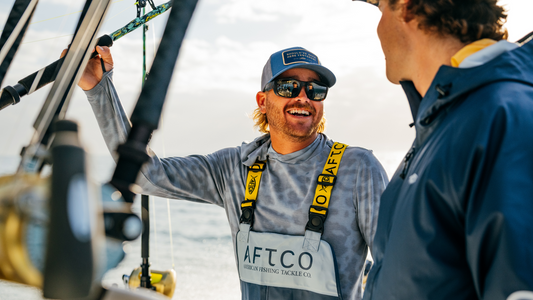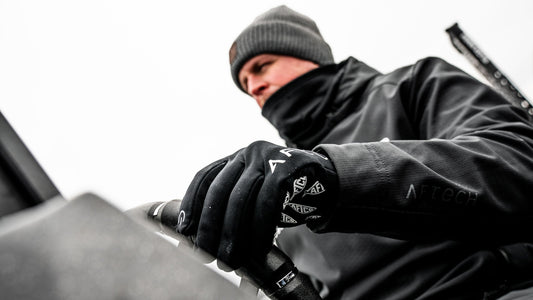
5 Boating Safety Tips
Captain Moe Newman is a seasoned captain and angler. She is one of the top guides in Southern Louisiana and spends most of her time on the water. From sunny skies to strong winds, Captain Moe Newman has seen it all. Before hitting the water, follow these five tips to stay safe on your next fishing trip.
1. Put in the Drain Plug
The drain plug is critical to have before hitting the water. It sits below the waterline and is used to release water from the bilge area when the boat is out of the water. This tip might seem obvious, but forgetting the drain plug is one of the most common boating mistakes and will cause your boat to capsize.
BONUS TIP: If your boat does not have a drain plug, like some smaller fiberglass and aluminum boats, have an automatic or mechanical bilge pump on board in case too much water gets into the boat.

The weather can get rough fast, and being prepared or not being on the water in the first place is a good idea.
2. Check the Weather
Anglers can use several weather apps to check conditions such as temperature, wind, swell, clouds, sea surface temperature, and tides. We recommend checking the weather a few days before your fishing trip to ensure you are prepared. If you notice concerning weather conditions on the day of your trip, it is best to wait and reschedule to avoid getting hurt on the water. Check out the weather links below to prepare for your day on the water.
NOAA Marine Weather Forecast: Apple | GooglePlay
3. Have a Float Plan
Float plans are an extra precaution that can quickly diffuse emergencies even if you only plan to be gone for a few hours. You'll always be thankful for having a float plan from losing cell service, getting a dead battery, or hitting unexpected bad weather. Float plans include details like who you are, who will be on the boat with you, what type of boat you have (size, engine, color, etc.), departure date and time, and arrival date and time. All this information can help save your life in case of an emergency. Even quickly mentioning to a friend or family member where you'll be and who you'll be with can make a difference. Then, they can still contact the Coast Guard with helpful information if something happens. To learn more and fill out your next float plan, click here.
4. Check Emergency Equipment
Emergency equipment requirements vary depending on the length of your boat and the state it’s registered in. However, emergency equipment is required on every vessel. With passengers on board, ensure everyone knows where to locate life jackets and other emergency equipment. Emergency equipment includes fire extinguishers, throwable floatation cushions, and life jackets. Life jackets should be worn by passengers when the boat is underway. If large waves come, someone can quickly get knocked overboard. Life jackets can save lives in situations like these. If passengers choose not to wear one at any point, ensure everyone onboard knows where the life jackets are located.

A VHF is a standard feature on most boats now, but if you dont have one, consider buying one.
5. Pack an Emergency Messaging Device
On the water, it’s easy to get out of cell range, which makes emergency messaging devices a must-have. Whether on a large vessel equipped with a VHF radio or a smaller vessel without one, anglers can always carry a handheld radio. Captain Moe recommends a satellite SOS device like the Garmin in Reach that comes with 24/7-staffed emergency Garmin Response and access to its global satellite network.
From the drain plug to packing an emergency messaging device, these five tips will help keep you and your crew safe on the water. This is only a partial list but a good starting point. One of the best resources for boating safety is the BOAT US Foundation, which offers free boating safety courses for all 50 states. These courses benefit anglers, especially recreational boaters who plan to rent a boat. We hope these tips help keep you and your crew safe on the water.






